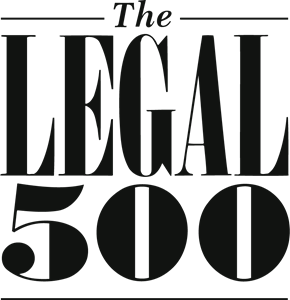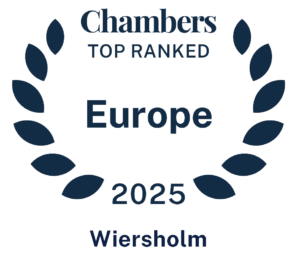
Andreas works in a wide range of tax law fields, including Norwegian corporate tax law, tax treaty law, transfer pricing, administrative tax law, tax payment law and EU/EEA tax law. Andreas has extensive experience with tax disputes, spanning reassessments, administrative appeals, litigation, MAP procedures, settlement negotiations and alternative dispute resolution. Furthermore, he assists a number of multinational enterprises within the areas of transfer pricing, including choice of operational structures and transfer pricing models, transfer pricing documentation, administrative disputes and litigation, in addition to providing day-to-da tax advice in all fields of tax law. Andreas assists clients in a number of different sectors, including the energy sector (both oil and gas and renewable energy), industry, banking and finance, transport and shipping.
Andreas wrote his doctoral thesis (PhD) on transfer pricing and tax treaty law at the University of Oslo. The doctoral thesis was awarded the Mitchell B. Carroll Prize by the International Fiscal Association (IFA) and the European Academic Tax Thesis Award by the European Commission and the European Association of Tax Law Professors. Andreas is also the author of the books “The EU, the EEA and tax: The four freedoms and direct taxation” and “Tax treaties: An introduction based on the OECD Model Tax Convention”, as well as a number of articles on domestic and international tax law, including EU/EEA tax law.
Andreas is ranked as one of Norway’s leading tax law experts by the recognized ranking agencies Chambers and Partners and Legal 500. Andreas is the chair of IFA Norway and is on the editorial board of “Tidsskrift for Skatterett” (the Tax Law Journal) and other tax law publications.
Awards, Work experience, Positions and Education
- Highly Regarded, ITR World Tax, General corporate tax, Transfer pricing , 2025
- Leading Partners , Legal 500, Tax, 2025
- Band 1, Chambers Europe , Tax, 2025
- Leading Individuals, Legal 500, Tax, 2024
- Band 1, Chambers Europe, Tax, 2024
- Notable Practitioner, World Tax, Tax, 2024
- Band 1, Chambers Europe, Tax, 2023
- 2023
- Top 10, Advokatundersøkelsen, Finansavisen, Tax law, 2023
- Band 1, Chambers Europe, Tax, 2022
- Band 2, Chambers Europe, Tax, 2021
- Band 2, Chambers Europe, Tax, 2020
- Mitchell B. Carroll Prize, International Fiscal Association, PhD dissertation, 2010
- European Academic Tax Thesis Award, The European Commission and the European Association of Tax Law Professors, PhD dissertation, 2010
- Partner, Wiersholm, 2013
- Scholar, Faculty of Law, University of Oslo , 2006
- Senior Associate, Wiersholm, 2002
- Chairman, IFA Norway
- Editorial counsel, Gyldendal Rettsdata: Tax Law
- Editorial counsel, The tax periodical "skatterett"
- PhD, University of Oslo, 2010
- Cand. jur., University of Oslo, 2002
Selected projects
Assistance to Equinor ASA in connection with a principle and complex case regarding so-called "thick capitalisation" of the Equinor group's financing company in Belgium. The case concerns an amendment decision by the Norwegian tax authorities entailing that, for tax purposes, a significant share of Equinor ASA's equity contributions in the Equinor group's financing company in Belgium must be restructured into a loan. The restructuring is sought to be anchored in the arm's length principle in section 13-1 of the Norwegian Taxation Act and in the tax treaty between Norway and Belgium, and the background for the restructuring is that the Norwegian tax authorities are of the opinion that the group's financing company was "thickly capitalised", i.e. capitalised with an excessive share of equity. The decision entails that Equinor ASA will be allocated an interest income from the restructured loan, which will consequently be taxed in Norway. If the decision is upheld, this will result in a significant increase in Equinor ASA's taxable income for the income years in question. Equinor ASA disputes the tax office's conclusions in the amendment decision, and has brought the case before Oslo District Court. The case raises the very fundamental question of whether the arm's length principle can be applied to equity contributions. The core of the arm's length principle is that group companies must agree on the same prices and terms as in agreements for comparable transactions entered into between independent parties. It makes no sense to apply the arm's length test to equity contributions, as such dispositions cannot take place between independent parties. Assuming that this question of principle is answered in the affirmative, the case raises several complex questions related to the assessment of whether a company is "thickly capitalised", and regarding the determination of a company's "arm's length" equity ratio. Andreas Bullen and Wiersholm partner Morten Goller serve as Equinor ASA's legal counsels in this case.
Assistance to Equinor Energy AS in connection with the company's tax case on transfer pricing of the petroleum product C5+ (a form of contaminated naphtha). Equinor Energy AS is the Equinor group's upstream company on the Norwegian continental shelf, and is subject to the Norwegian petroleum tax regime with a current tax rate of 78 percent. Equinor Energy AS sells its petroleum products to its parent company, Equinor ASA, which is subject to the Norwegian normal tax regime, with a significantly lower tax rate, currently at 22 percent. The transfer prices of the product sale transactions thus has a very large impact on the group's total tax burden. The Petroleum Tax Office had decided that Equinor AS' transfer price for the petroleum product C5+ during the period of 2012–2014 was incorrect. This resulted in an increase of the company's taxable income by approx. NOK 382 million. Equinor Energy AS disputed the Petroleum Tax Office's conclusions, and brought the decision before the courts. Andreas Bullen and Wiersholm partner Morten Goller represented Equinor Energy AS before Oslo District Court. Equinor Energy AS fully succeeded before the district court, which quashed the Petroleum Tax Office's decision. The district court's judgment has been appealed.
Assistance to the Norwegian Bar Association in a principle case on the taxpayers' right to submit new legal arguments for judicial review by the courts in tax cases. In March 2020, Borgarting Court of Appeal pronounced a judgment in a case concerning the validity of Total E&P Norge AS' tax assessments for the years 2007, 2008 and 2009. In the judgment, the court of appeal, contrary to previous case law, assumed that the taxpayer could not submit new legal arguments during the court proceedings, despite the fact that the legal arguments were based on factual evidence that had been provided to the tax authorities during the administrative proceedings of the case. The court of appeal's judgment thus entailed a narrowing of the possibilities of having new legal arguments examined and reviewed by a court of law. The Norwegian Bar Association's law committee for tax law, to which Mr. Bullen is a member, took the initiative on behalf of the Norwegian Bar Association to submit a writ, a so-called "amicus curiae", expressing the association's view on this part of the case. Mr. Bullen acted as counsel for the Norwegian Bar Association.

